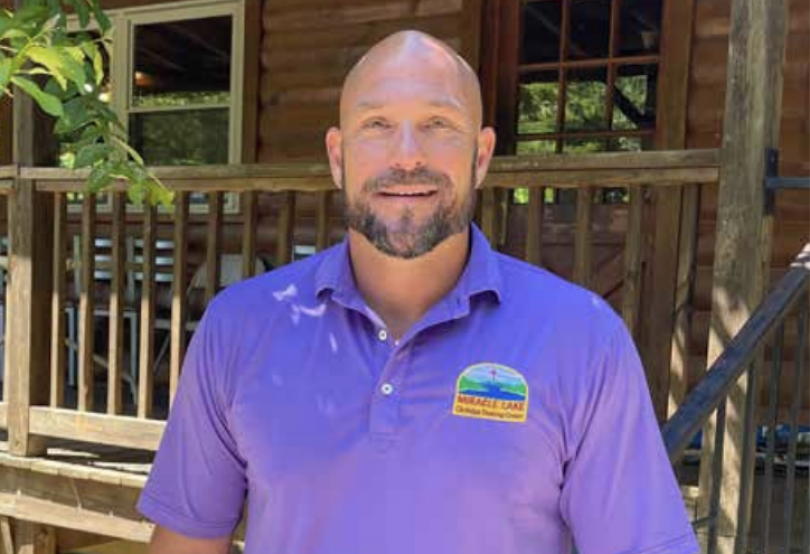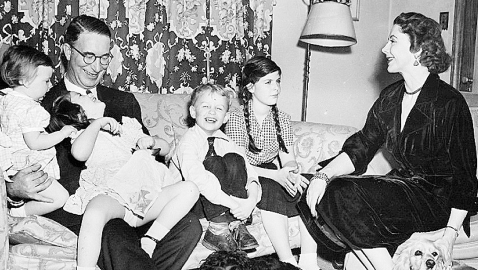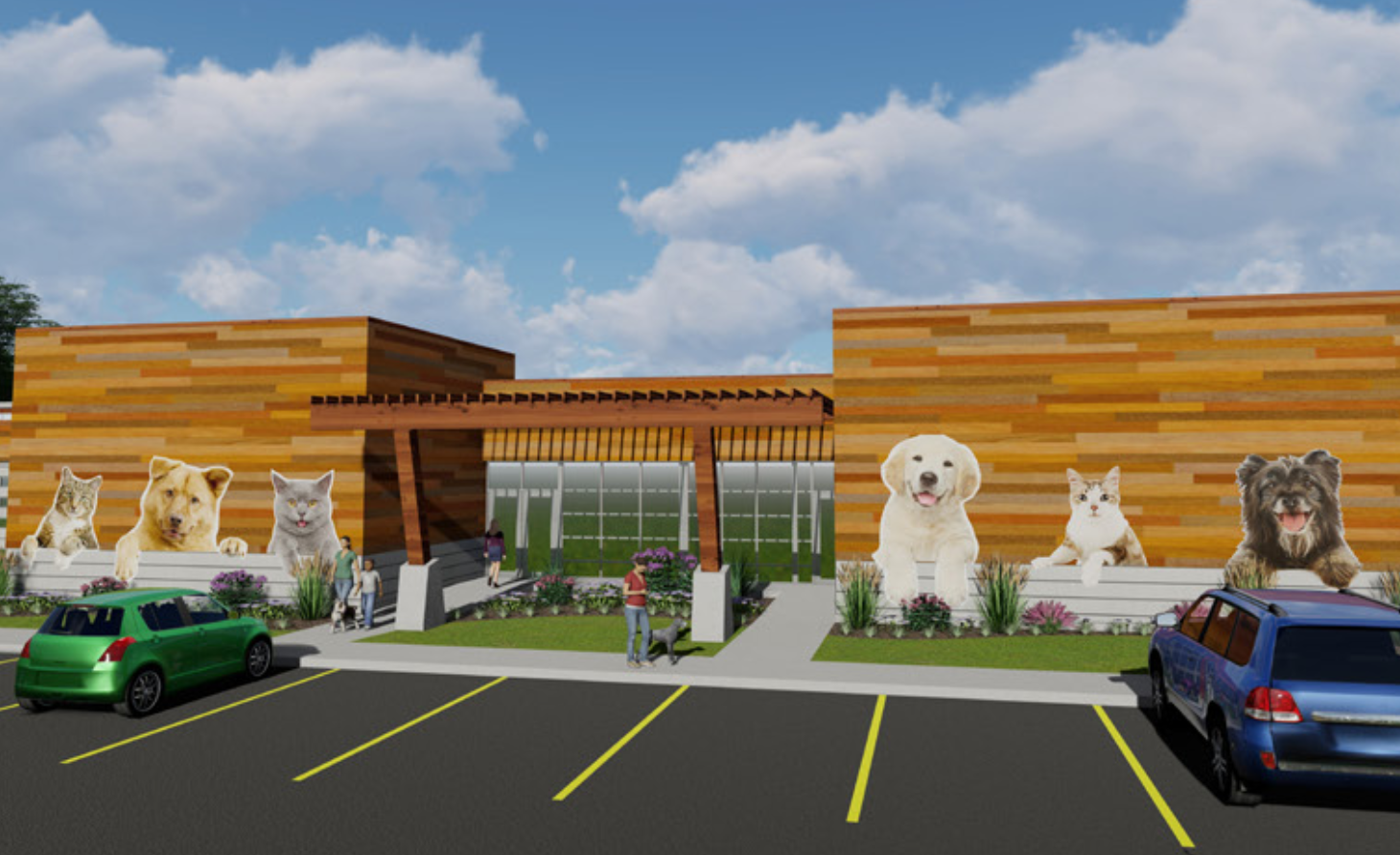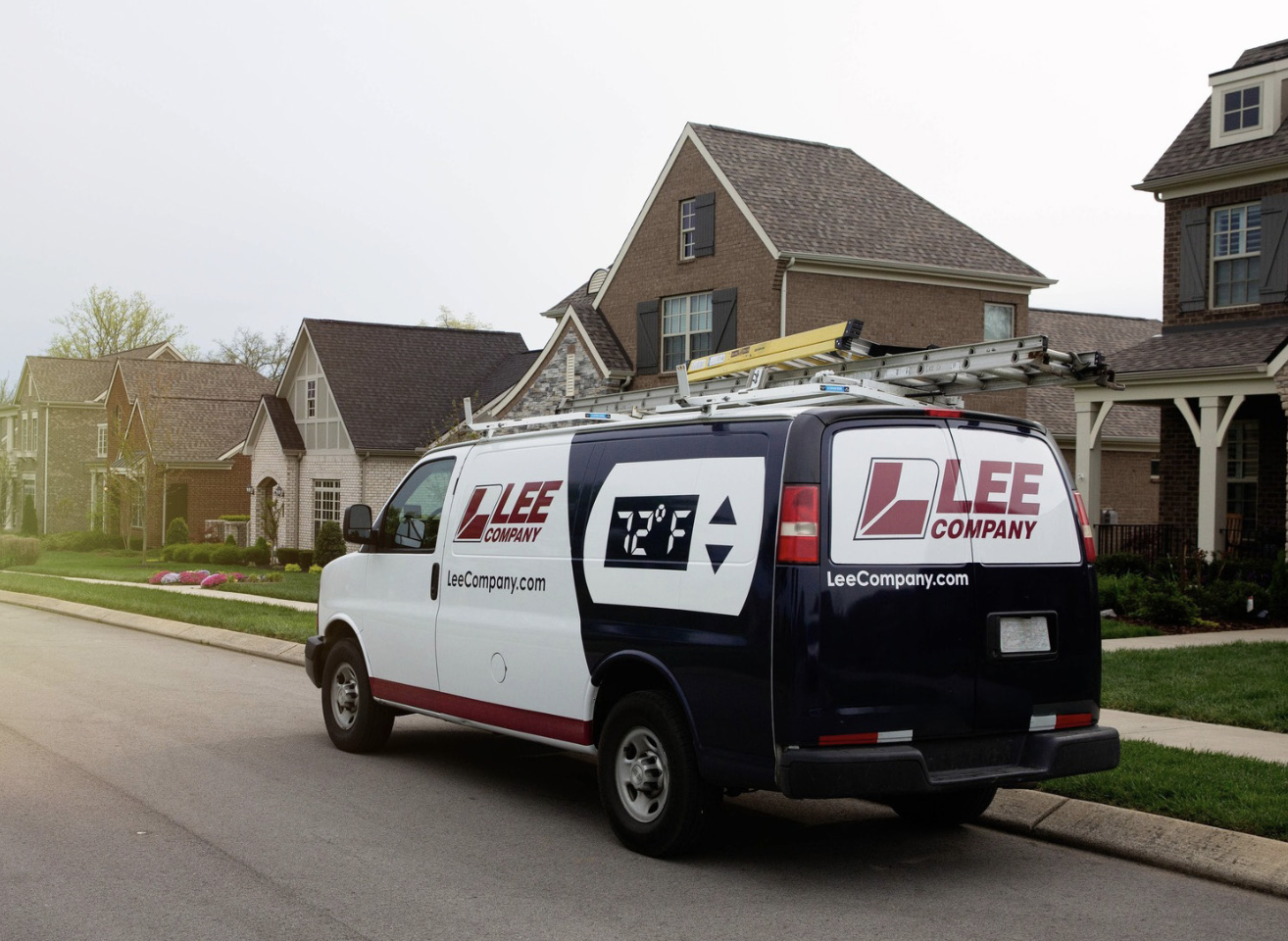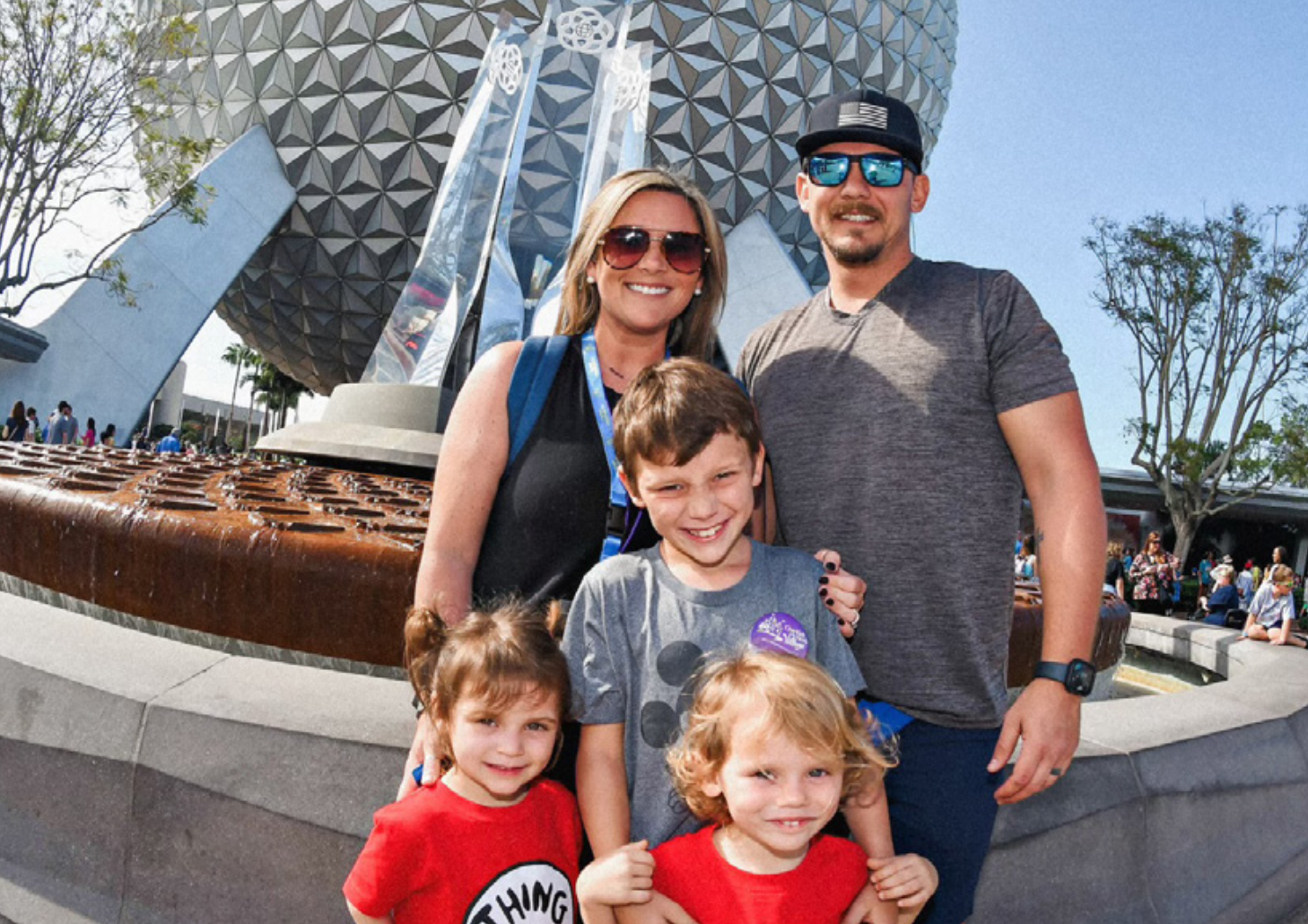A small chapel and a cluster of wooden cabins surround a still lake. It would almost look like a summer camp except the residents aren’t children but adults.
Miracle Lake is a Christian Training center in Etowah, TN, and since 1980, they’ve had over 2,400 students in their recovery program for drug and alcohol addiction.
Their general manager is a man named Byron Goodman, a former student who attended Miracle Lake years ago. Here he experienced God’s mercy and saw his power to change lives. We traveled to the facility to learn his story.
Byron is a friendly man with a Southern accent. He sat across from us at a wooden desk and told us about his life: “[I was] born and raised in Roane County, went to Oliver Springs High School, graduated in 95.”
After this, he began college, which was the start of a dark part of his life. Byron sometimes drank in high school, but in college he began experimenting more with drugs: pills, cocaine, and eventually what would become his drug of choice—oxycodone.
He explained, “I’d go to school, go out and have some beers, get intoxicated, then I found out I could take a hydrocodone—I’d feel better and make it to class the next day, and [it would] take care of my headache.” Soon, he was using them every day.
When he was a junior, he transferred to UT. Soon, however, his father began noticing changes in his appearance and behavior. Instead of being fun and energetic, Byron had grown irritable and moody, often telling lies to try to hide his addiction; he wasn’t the same person.
They decided Byron should temporarily withdraw from college to get recovery treatment. He attended a center in Nashville for two weeks and got detoxed, but he did it all “without God,” never seeking a personal relationship with Christ. He’d been raised in church, but it was all just religious routine with no relationship. He also didn’t change his lifestyle, continuing to hang out with the same people as before, trying to stay sober in a bad environment.
In his senior year, he relapsed.
Byron returned to the recovery center to detox, but not long after, he relapsed again and had to return to the program. By now, his dad had paid tens of thousands for the treatments, all out of pocket, so after this second relapse, he told Byron, “If you do this again, I’m done. I can’t financially afford all these rehabs.”
Despite this warning, he relapsed again. Then, he got evicted from his condo and was out on the streets. He called his dad who said, “Son, I told you I love you, but I can’t help you again.”
In the long run, this refusal would turn out to be a good thing. “He was an enabler,” Byron said. Without meaning to, his dad had been enabling his addiction.
Byron’s car was soon repossessed, and he found himself walking down the side of the interstate to a homeless shelter. He tried to get a job, but it never worked out because of his addiction.
“I just lived underneath a bridge for about six months,” he recalled. “I ended up getting to stay at a few bad places from time to time… It was like a horror movie. I never thought it would happen to me.”
In 2006, Byron’s brother found out about Miracle Lake and called their dad, saying, “It’s a Christian-program, [and] Byron needs a miracle to get this straightened out.”
Byron came to Miracle Lake on September 7, 2006. He was frail, sick, and underweight from malnutrition. A week or two after his arrival, during one of his classes, Jack, the founder of Miracle Lake, was talking about salvation and how people need to enter into a relationship with Jesus Christ to be saved.
Byron raised his hand, tears in his eyes, and said, “Jack, you’re talking about repentance, and repentance is a willingness to change. Well, I want to change. I’m sick and tired of this lifestyle. How do I get saved?” Jack invited him to the front of the class, and they knelt and prayed together.
“I invited Jesus into my life,” Byron told me. “I accepted him as my Lord and Savior. And my heart started changing. My attitude started changing. I just felt peace. I felt the burdens lifted. I was like, ‘Well, I may not have a place to live when I graduate this program, but I have a home when I die.’” Through the Bible, he began to understand who God is and realized that he’d been missing a relationship with him, and that was why he was dysfunctional, why his life wasn’t what it should be, Byron explained. “You have no strength without God,” he said.
Byron graduated a few months later but asked Jack if he could stay longer because he needed structure and routine. He ended up staying for six months as a student graduate. Then, on April 1, 2007, Jack asked if Byron could be the house manager. He said he’d love to help—anything he could do to serve and be useful.
“I lived here 18 months,” Byron said, “lost track of time, fell in love with God.”
During this time, Byron also repaired his relationship with his family. During high school, he had dated a girl named Brandi, and after high school, she’d become pregnant with their daughter, McKenzie. He had left them when he went to college.
Byron told us, “When I was here [at Miracle Lake] and finally got my life straightened out, I started seeing McKenzie again, and she wanted to have weekends with me. So, I couldn’t have weekends with my daughter while living at Miracle Lake, so I decided to work on trying to find [somewhere else to live].”
Byron’s grandparents had left him an inheritance with a trustee, and he had access as long as he was sober. He used this to buy a house in Madisonville and moved there in 2008, although he continued working at Miracle Lake.
“So, McKenzie started coming back into my life,” Byron said. “Well, her mother and I were broken up for 12 years. Never in a million years did I think we’d get back together.”
One time, when Brandi was picking up their daughter, she met Jack, director of Miracle Lake, who started talking to her and Byron about how their relationship had ended. Shortly after, Byron had a crazy idea—he asked Brandi out to dinner. Predictably, she refused, saying he’d broken her heart and she’d never let him back in her life again.
A month passed, and one day Brandi called him and said, “I’m stupid probably for doing this, but let’s go have dinner.”
Sitting with us, years afterward, Byron smiled and said, “Jack did our wedding 12 years ago. Yesterday was our anniversary.”
Today, Byron is the owner of a transition facility called Graduate Hall where recovering addicts go after graduating from Miracle Lake, and he helps dozens of men who are in the same place where he once was.
But the miracle was not yet complete.
On November 17, Jack retired after 42 years at Miracle Lake, and guess who he chose as his successor.
In 2006, when Byron’s brother recommended he go to the recovery center because he needed a miracle, I doubt anyone imagined that one day he would be running that same center.
“I’m just paying it back for what happened to me here,” Byron said.


